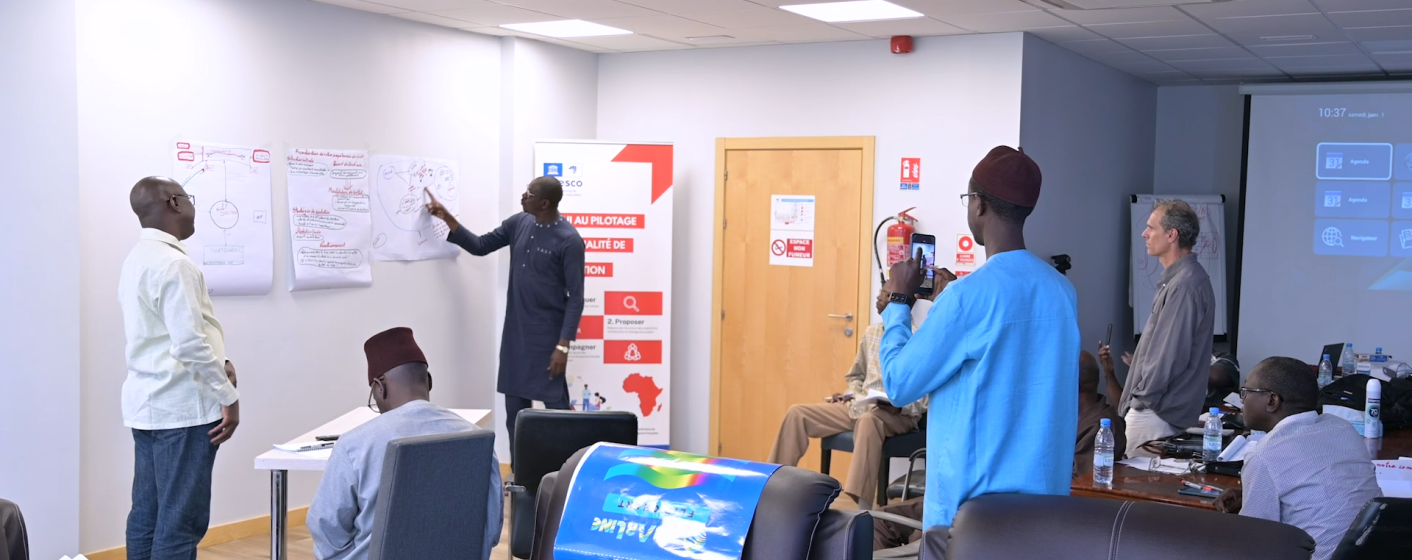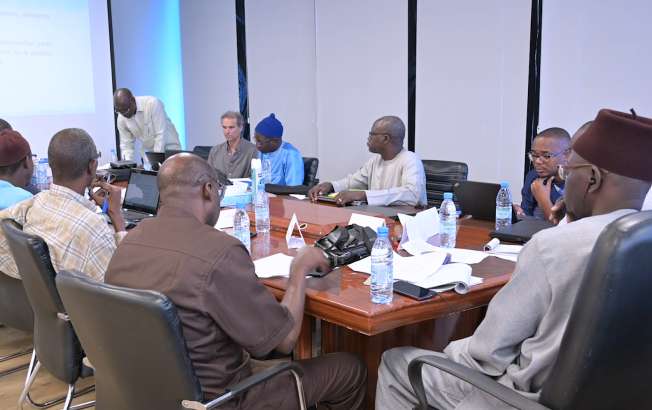In Senegal, inspectors and school principals engage in self-analysis to better support teachers.
Listening and showing interest in the difficulties teachers face: Senegal aims to provide better support for its educators. With the support of IIEP-UNESCO, Senegalese school inspectors and principals, responsible for supervising teachers, are learning to analyze and improve their own practices. This is a concrete way to influence student results.
Listening, training, and support are three essential conditions for genuine teacher engagement in their work. However, when teachers rarely have access to mentors or continuous training that truly meets their needs, it inevitably affects the quality of their students' learning. Pedagogical support is essential as it serves as a catalyst for teachers' professional development. It helps teachers break free from isolation and enables them to address their challenges and improve the effectiveness of their actions.
However, the lack of financial and human resources makes this support almost non-existent or ineffective. In Senegal, the support for education quality management program of the International Institute for Educational Planning of UNESCO (IIEP-UNESCO) has identified the need to strengthen teacher support as a top priority. Despite numerous efforts in the country to ensure that every child has access to quality education, the results have been mixed, especially concerning teacher support.
In Senegal, the Ministry of Education supervision staff is expected to support teachers in two ways: either inspectors conduct classroom visits, or they convene groups of teachers in Pedagogical support units. However, after the few meetings that do take place, teachers often feel controlled rather than supported, and the initial goal of improving their skills is not achieved. Emilie Martin, an educational policy analyst at IIEP-UNESCO, describes the situation, saying, "Teachers perceive a disconnect between the aspects assessed by the inspector, who sometimes acts like a law enforcer, and their unaddressed needs."
But dissatisfaction is just as great among inspectors who are overwhelmed with work, too few in number, and burdened with diverse and sometimes vaguely defined responsibilities. Patrick Nkengne, program manager and quality management expert, notes, "On average, each inspector is responsible for 250 teachers, and they don't have time to conduct all the classroom Inspections. They also have to manage schools, organize teachers' professional examinations, resolve conflicts within institutions, and the list goes on." Senegal, aware of the problem, has found a partial solution by involving school principals in teacher support. However, these principals are not trained for these new roles and already have a full schedule.


